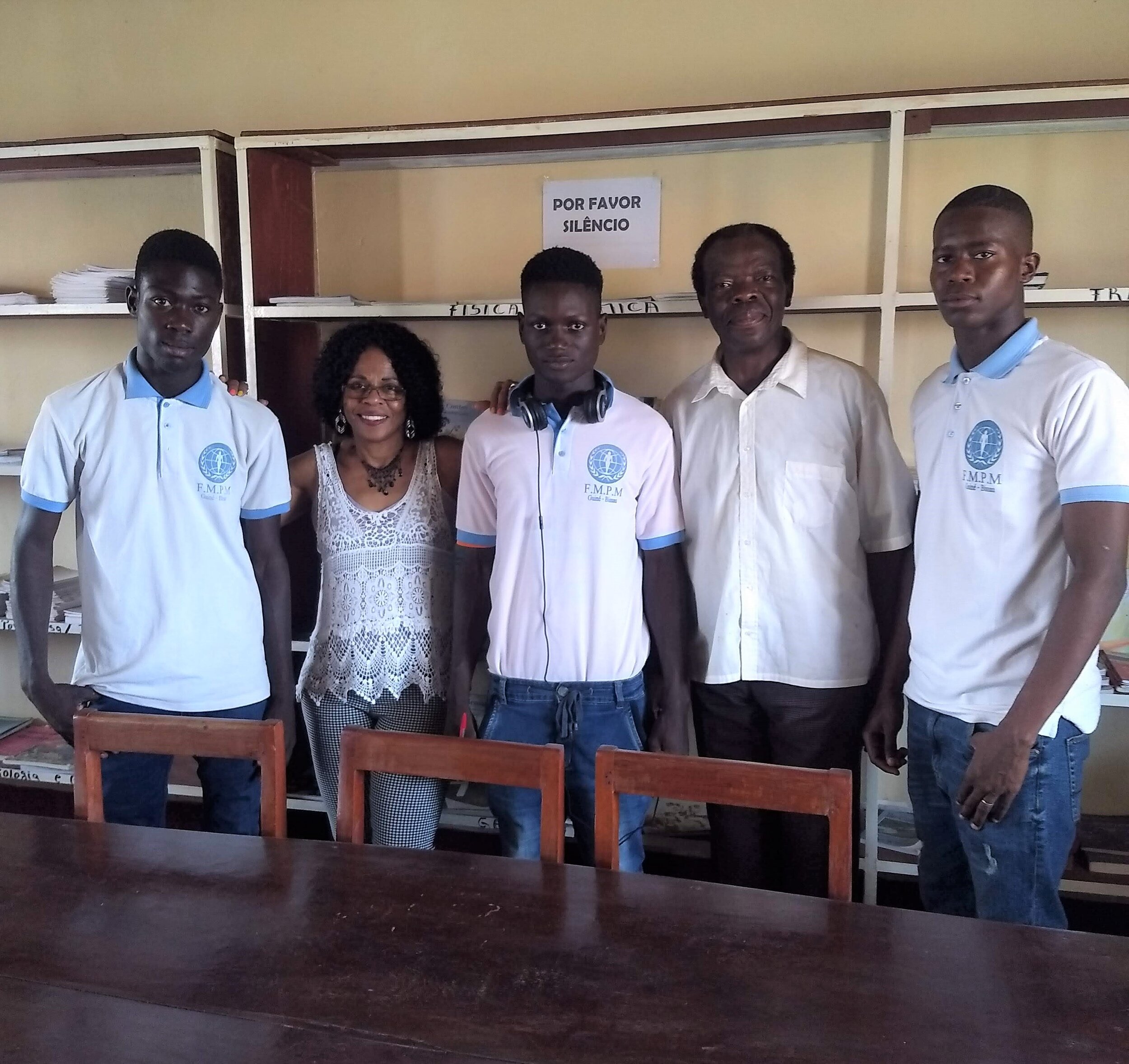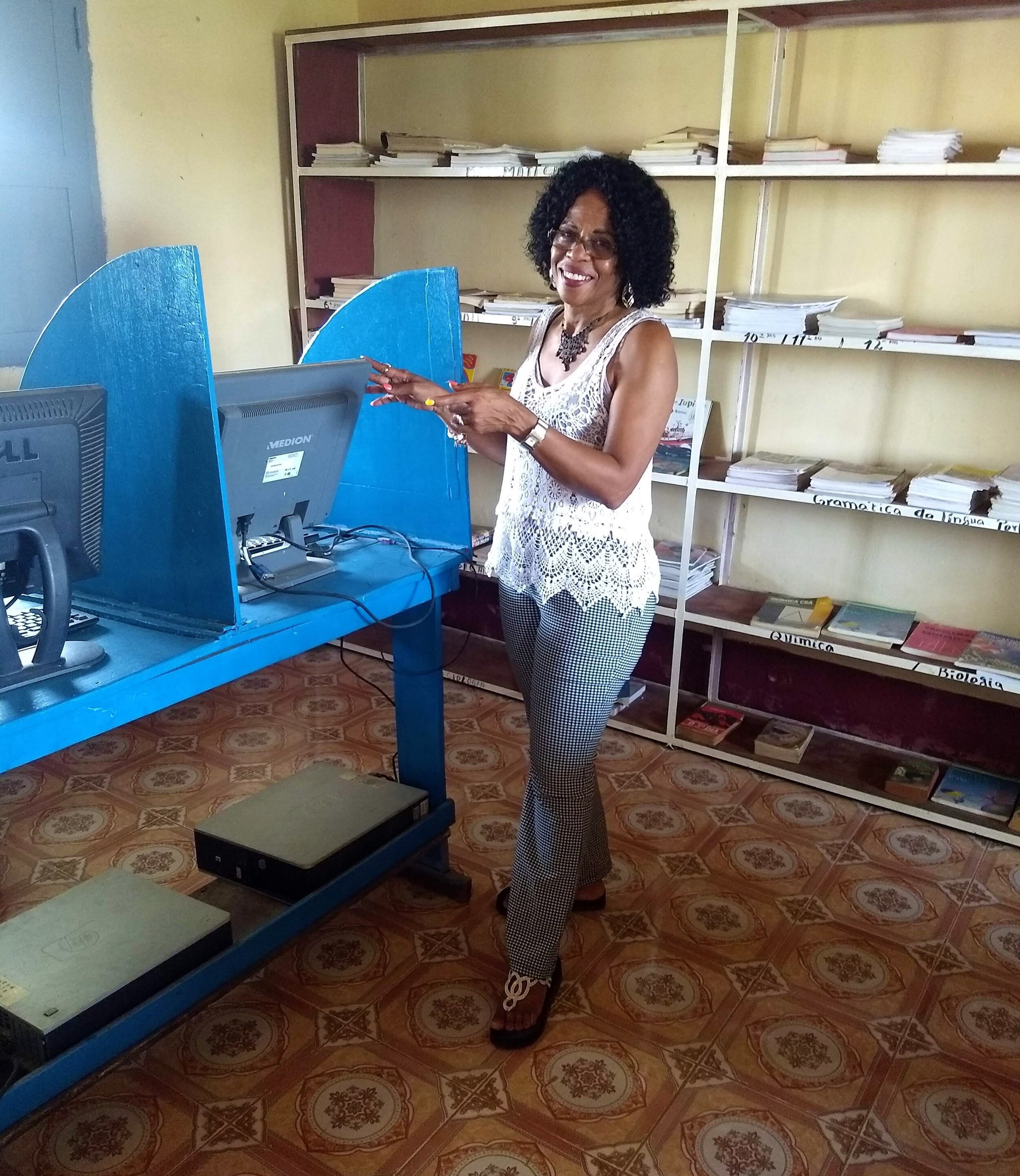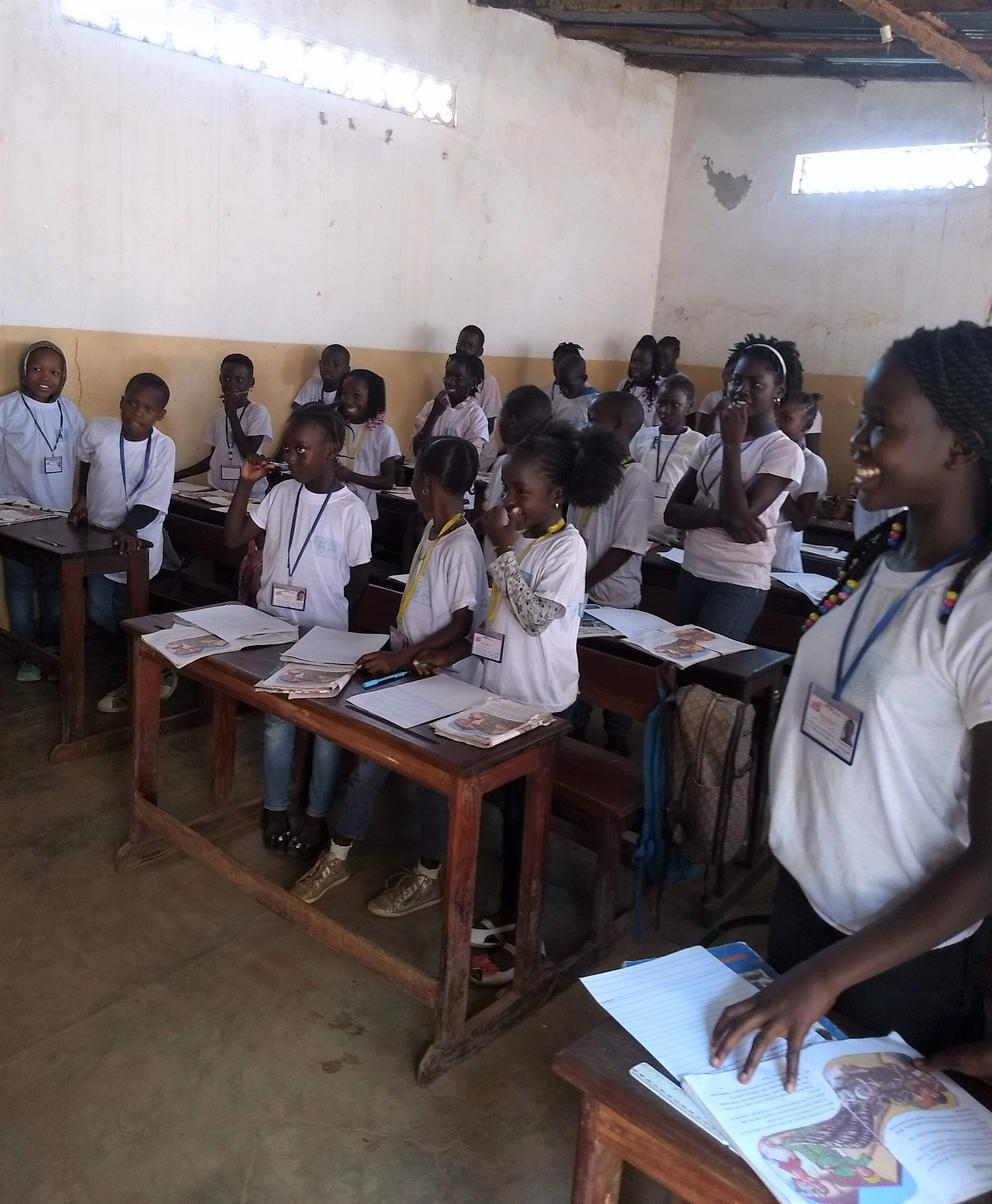From Maine to Guinea-Bissau, with love
Plagued by decades of political instability and a struggling economy, education has unfortunately been left behind in the small country of Guinea-Bissau. The nation has one of the lowest primary school completion rates in West Africa and widespread poverty is one of the main barriers to education. With the heart to serve where the need was greatest, a dedicated group of WFWP volunteers opened the Sunac Elementary School in the capital city of Bissau in 2003. Over time, with the help of generous donations collected through the Schools of Africa Project, it expanded to include a middle and high school that serve more than 800 students today.
For years, the WFWP Maine chapter has had a close relationship with the schools in Guinea-Bissau, sharing love and care through gifts of school supplies and funds, but also through personal visits. Maria Cushing, a member of the WFWP Maine chapter, has visited the schools twice within the past six months, once in November 2019, and more recently in early March 2020.
As chairwoman of WFWP Maine, I was excited to hear about Maria’s trip (which took place before Maine had any coronavirus cases). Although it was on short notice, I did not want to miss the opportunity to send some light-weight school supplies, such as pens and pencils, which Elena Odlin dropped off at Maria's house. We had also collected some money from a "friendly" auction at our February meeting, and the WFWP Maine chapter agreed to donate these funds to the schools to buy some other supplies locally. We collected $250, and Maria gave the schools’ president a total of $300, adding her own personal contribution.
Maria delivered the supplies and spent some time touring the schools. The middle school serves a lot of students, and in order to accommodate them all, half attend morning classes and the other half attend sessions in the afternoon. It is in a good location, right in the capital, Bissau, in the district of Luanda. It is all fenced up and with a security person at the gate.
The high school, which has less students, is further away and close to the mato, a Portuguese term referring to an underdeveloped area full of bushes and trees. The mato has no roads, just dirty paths. Maria said that all the students looked very healthy and proud of their schools. She was very impressed with the great work that WFWPI has done there and became really inspired!
To get a better understanding of the day-to-day learning, she observed the students during an English class and had a lengthy discussion with one of the teachers, in Portuguese, where he shared about the various subjects taught in the schools: History, Geography, Portuguese, English, Math, Moral Education and Physical education.
Through her reports and the images that captured the students’ joy and eagerness to learn, we were encouraged to keep supporting these schools and continue our fundraising efforts. If you are interested to find out more about the Schools of Africa Project or would like to offer your own monetary gift, click here.






